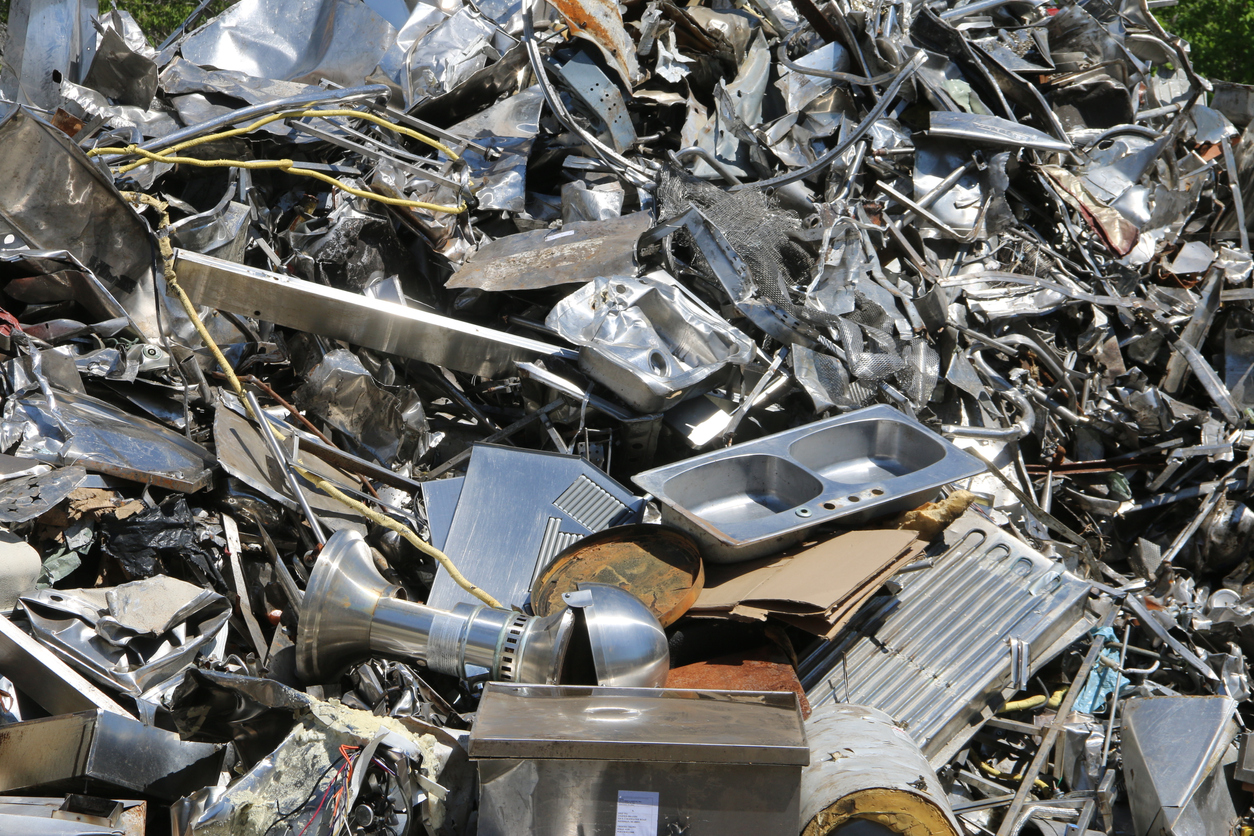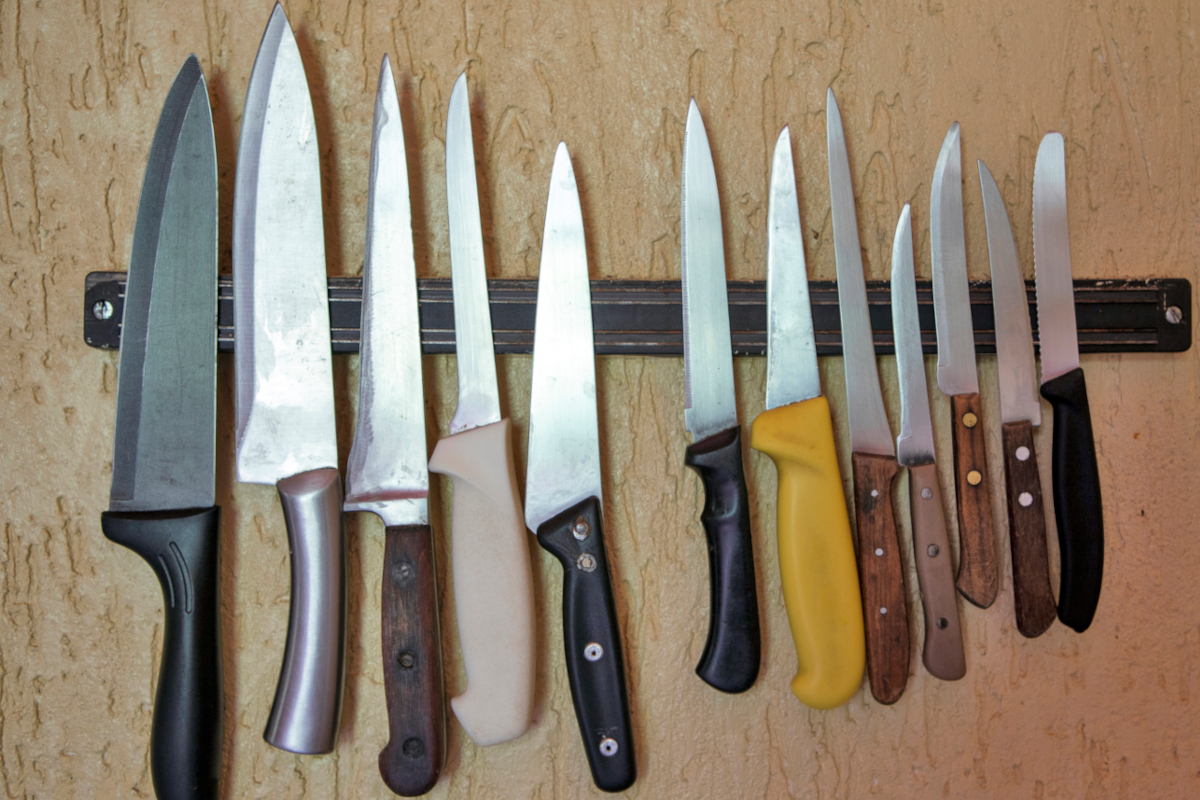We may earn revenue from the products available on this page and participate in affiliate programs. Learn More ›
Q: My old knives have seen better days, and I’m ready to purchase a new kitchen knife set. However, I’m not sure how to dispose of knives without creating a safety hazard. How do you recycle or throw away knives safely?
A: Knives are sharp and can be a safety hazard if not discarded properly, so learning how to dispose of old kitchen knives safely is important. Blades can cut through trash bags and injure potential handlers—including yourself, household members, trash collectors, and disposal facility workers.
If you’d like to know how to throw away knives, or how to donate or recycle them, read on for all the information you need to do so properly.
Related: The Best Pocket Knife Brands for Everyday Carry
Donate kitchen knives that are still in fair condition.
When it comes to kitchen knife disposal, don’t overlook the possibility of donating knives that are still usable. One person’s trash is another person’s treasure, and that old adage definitely applies to cutlery.
Even if your knives are not in pristine condition, they could still be useful to someone else. In the right hands, restoration and sharpening could give new life to your old kitchen knife set. If you’re simply looking to replace your functional old knives with new ones, consider giving your knives to a charitable organization, if not someone you know personally.

Take old knives to a scrap metal recycling center.
Another acceptable option to consider when thinking about how to dispose of old knives and utility blades is recycling. These sharp objects can’t be placed in the recycling bin you put out on the curb each week, though. Instead, knives should be taken to a scrap metal recycling center.
You can contact your county or city government or visit their websites to determine if there is a nearby scrap metal recycling center. Alternatively, you can also search online for “knife recycling near me” to find the nearest location.
Because knives can injure yourself and others, you shouldn’t simply place them in a plastic bag before taking them to a recycling center. To be safe, wrap the blades in paper (newspaper works well) and place them inside a box to protect yourself and anyone else who handles them from injury.

Knives that are no longer useful can be discarded in the trash.
In some cases, throwing away a knife may be the best solution. This can be true if your knife is so damaged that it can’t be used safely or effectively and there’s no scrap metal recycling center nearby.
If you absolutely need to throw away a knife, safety is of the utmost importance. Almost any type of knife can have very sharp blades, which could slice through most plastic bags. This can put anyone who handles knives that are in a plastic bag at risk of potentially severe injury.
To minimize the threat of injury to yourself or anyone else, carefully follow the steps below when throwing away knives in the trash.
- Wrap knife blades individually in multiple layers of newspaper or other large sheets of paper. Tape the paper around each blade to keep it from sliding off.
- Cut out one flat section from a cardboard box that is at least twice as long as the blade of the longest knife you’re discarding. Fold the cardboard over the knives and use packing tape or duct tape to keep them from shifting.
- Find a cardboard box large enough to hold the knives, place the wrapped knives inside the box, and seal the box with tape.

Related: The Best Kitchen Knife Brands for Easier (and Safer) Cuts


